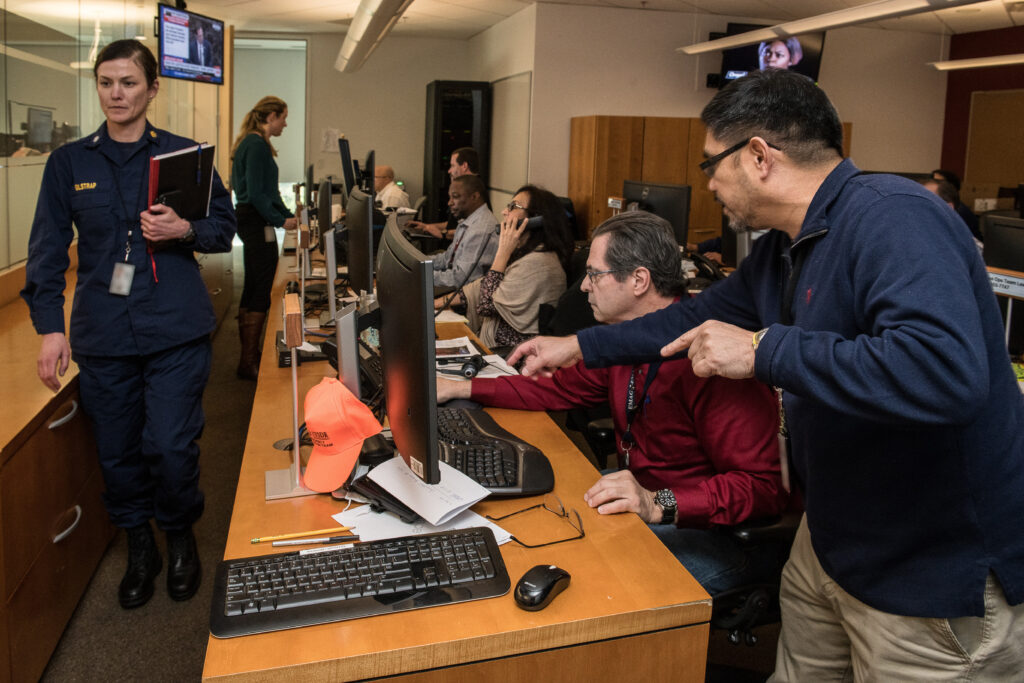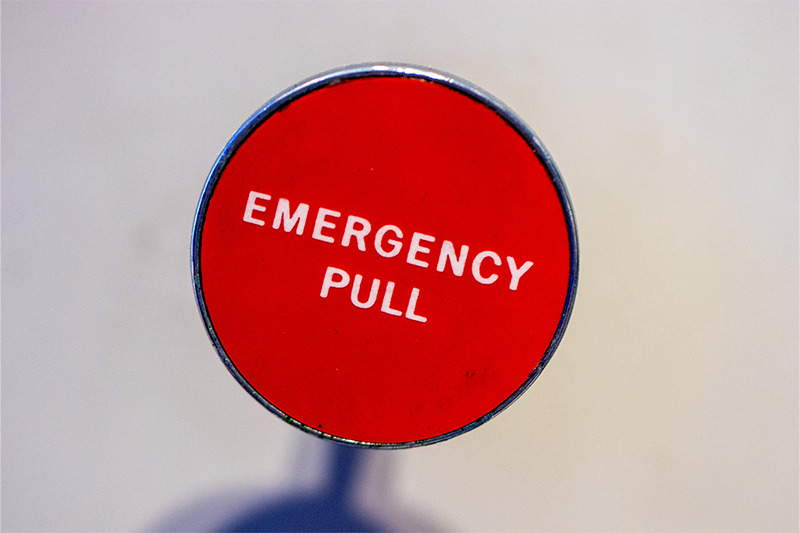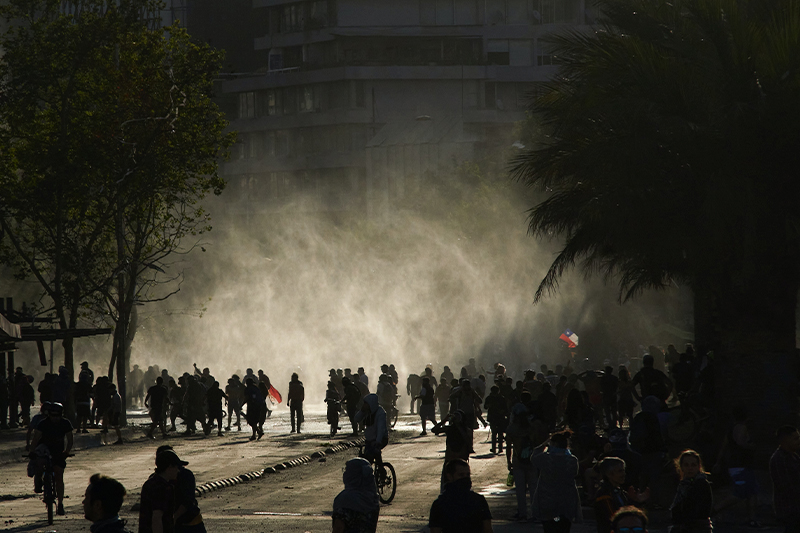
Today's Crisis Managers Are Evolving
The required skills and attributes of today’s crisis managers are evolving. However, some valued capabilities remain the same. In this blog, I will share some of the trends I see in the field and share overall competencies that anyone in the role can cultivate. There’s also an overview of how emergency and crisis managers are trained, explaining the difference in focus.
The primary difference between an emergency manager and a corporate crisis manager is that emergency managers focus on coordinating and responding to large-scale emergencies and disasters affecting communities. In contrast, corporate crisis managers specialize in managing crises specific to organizations, including reputational, operational, or financial crises. Similarities exist, but the audience is vastly different. Many early crisis managers came from the public sector, either former emergency managers, law enforcement, or from military service. A corporate crisis manager brings specialized expertise in managing organizational crises, protecting reputation, and navigating complex business environments. In contrast, an emergency manager coordinates and responds to large-scale emergencies, supporting their communities within a governmental framework.

Crisis Leaders Were Emergency Focused
The history of corporate crisis managers dates back to the mid-20th century when organizations began recognizing the need for specialized professionals to handle crises and protect their reputation. Initially, crisis management was primarily focused on the public relations aspect of handling crises. Organizations relied on PR practitioners to navigate through media scrutiny and public perception during challenging times. These early crisis managers focused on mitigating reputational damage and ensuring consistent messaging.
As time progressed, the role of corporate crisis managers evolved to encompass a broader range of responsibilities. With the increasing complexity of business operations and the rise of global interconnectedness, organizations started to realize the need for a more comprehensive approach to crisis management. Crisis managers began to be involved in proactive risk assessment, emergency planning, and coordination of response efforts. They worked closely with various departments within organizations, including legal, communications, operations, and human resources, to develop robust crisis management strategies.
Today, corporate crisis managers play a crucial role in identifying potential risks, developing crisis response plans, and leading organizations through unforeseen events. They are responsible for coordinating emergency responses, managing stakeholder communications, and ensuring business continuity. The evolution of corporate crisis managers reflects the recognition of the importance of preparedness, strategic decision-making, and effective communication in navigating crises and safeguarding the reputation and viability of organizations.

Modern Crisis Manager Training
Modern crisis managers are trained through theoretical knowledge and practical skills development. They attend crisis management courses and certifications covering risk assessment, crisis communication, decision-making, and strategic planning. These programs provide a solid foundation in crisis management principles and best practices. Additionally, crisis managers participate in workshops, seminars, and tabletop exercises that simulate crisis scenarios. These practical training sessions allow them to practice decision-making, communication, and coordination skills in a controlled environment. They also engage in on-the-job training and mentorship, learning from experienced practitioners and gradually taking on more responsibilities. Continuous learning and professional development activities, such as attending conferences and staying updated on emerging trends, ensure that crisis managers remain current and adaptable in the face of evolving challenges.
Modern crisis managers undergo classroom-based learning, practical exercises, and continuous professional development to build crisis management skills. This comprehensive approach equips them with the knowledge, skills, and experiences to effectively navigate crises and confidently lead their teams. So far, I have not encountered formal degree programs, but there are certification and training opportunities.

Emergency Managers Have A Community Focus
Emergency managers undergo training to acquire the skills and knowledge necessary for effective emergency management. They typically receive formal education through academic programs offering emergency management degrees or related fields. These programs provide a comprehensive understanding of emergency management principles, policies, and practices. They cover hazard analysis, risk assessment, emergency planning, response coordination, and recovery strategies. Through coursework, case studies, and research projects, emergency managers develop critical thinking, problem-solving, and leadership skills essential for managing emergencies.
In addition to formal education, emergency managers participate in specialized training programs and workshops. These training sessions focus on specific aspects of emergency management, such as incident command systems, disaster response coordination, crisis communication, and resource management. They often involve hands-on exercises and simulations to simulate emergency scenarios and allow emergency managers to practice their skills in a controlled environment. These training programs aim to enhance decision-making, communication, and coordination abilities and provide emergency managers with practical experience and tools to respond to and recover from emergencies and disasters effectively. This multi-faceted approach equips them with the knowledge, skills, and practical experience to effectively manage emergencies, coordinate response efforts, and facilitate recovery.

Recommended Thinking Skills of Crisis Leads
Crisis managers require specific thinking skills and attributes to navigate and mitigate crises effectively.
Seven key qualities and thinking styles that are beneficial for crisis managers:
- Decisive thinkers: Crisis managers must make critical decisions swiftly and confidently under pressure. They are adept at analyzing available information, assessing risks and consequences, and taking decisive action. They can prioritize effectively and make tough choices quickly.
- Calm and composed thinkers: Maintaining composure is crucial to inspire confidence and stabilize during a crisis. Effective crisis managers think clearly and rationally amidst chaos. They remain calm under pressure, avoid panic, and make level-headed decisions.
- Analytical thinkers: Crisis managers need strong analytical skills to assess complex situations, identify root causes, and understand the implications of various courses of action. They evaluate information objectively, identify patterns or trends, and make data-informed decisions. Analytical thinking helps to see the big picture and assess potential risks and consequences.
- Creative problem solvers: Crises often require thinking beyond conventional solutions. They can generate innovative approaches, consider alternative strategies, and find novel ways to respond. They think creatively, explore unorthodox ideas, and adapt their thinking to find effective solutions in rapidly changing situations.
- Collaborative thinkers: Crisis management often involves working with diverse teams and stakeholders. Collaborative thinkers excel at building relationships, fostering effective communication, and leveraging the team’s collective intelligence. They can unite people, delegate tasks, and collectively coordinate efforts to address the crisis.
- Strategic thinkers: This includes anticipating potential risks, planning for contingencies, and developing proactive strategies to mitigate the impact of crises. They evaluate the long-term consequences of different decisions, consider multiple scenarios, and guide the organization through the problem while keeping the overall strategic goals in mind.
- Ethical and empathetic thinkers: Considering the ethical implications of decisions and actions is critical. Managers need to empathize with those affected by the crisis and consider the wider impact on stakeholders. Honest and empathetic thinkers can navigate complex moral dilemmas, prioritize the well-being of individuals, and make decisions that align with the organization’s values.
Summary
Effective crisis management requires combining these thinking skills, practical experience, and a strong understanding of the organization and industry.

Broader Skill Sets For Crisis Managers
Today’s corporate crisis managers are increasingly expected to possess a broader set of skills and attributes compared to the past. While crisis management expertise remains essential, there is a growing emphasis on additional competencies to address the evolving landscape of risks and challenges.
One important trending skill is digital and social media literacy. With the prevalence of social media and the speed at which information spreads online, crisis managers must be adept at monitoring and managing digital channels effectively. They need to understand social media dynamics, engage with stakeholders online, and mitigate the potential impact of misinformation or negative sentiment. Today’s corporate crisis managers highly value digital crisis communication strategies and the ability to leverage technology for crisis monitoring and response.
Another important attribute is adaptability and agility. In today’s rapidly changing business environment, crisis managers must be able to quickly assess new risks, adapt crisis response plans, and make informed decisions in dynamic situations. The ability to think critically, pivot strategies, and effectively lead teams through uncertainty is crucial. Agile crisis managers can respond to emerging threats, leverage emerging technologies and approaches, and navigate unforeseen challenges while maintaining a proactive and resilient stance.
While core crisis management expertise remains vital, today’s corporate crisis managers are expected to have a broader skill set that includes digital and social media literacy, adaptability, and agility to address the unique challenges of the modern business landscape effectively.
Related Disaster Empire Blogs and Podcasts
Below is a list of related blogs:
- A Crisis Management Conference’s Value
- A Polycrisis Is On The Horizon
- BlackBerry AtHoc’s Crisis Management Advantage
- Tips For Civil Unrest Events
- Is The Crisis Management ISO Valuable?
- Do You Have Resources To Manage A Crisis?
- Crisis Management’s Value
Podcasts:
- Cybersecurity & Critical Event Management with BlackBerry’s Jamie Mills
- Crisis Management & Business Resiliency with MIT’s Dr. Steve Goldman
- Resilient & Strategic Corporate Crisis Management with Brendan Monahan
- Resilience and Effective Crisis Management with Sarah Armstrong-Smith
- A Whole Community Response to Resilience with Erika Andresen
- Crisis Management and Resilience with ICMC’s Rob Burton
Did You Know?
Disaster Empire blogs contain embedded links to source materials, articles of interest, videos, books, and training I recommend. Just click on the blue embedded link to access the resource.
